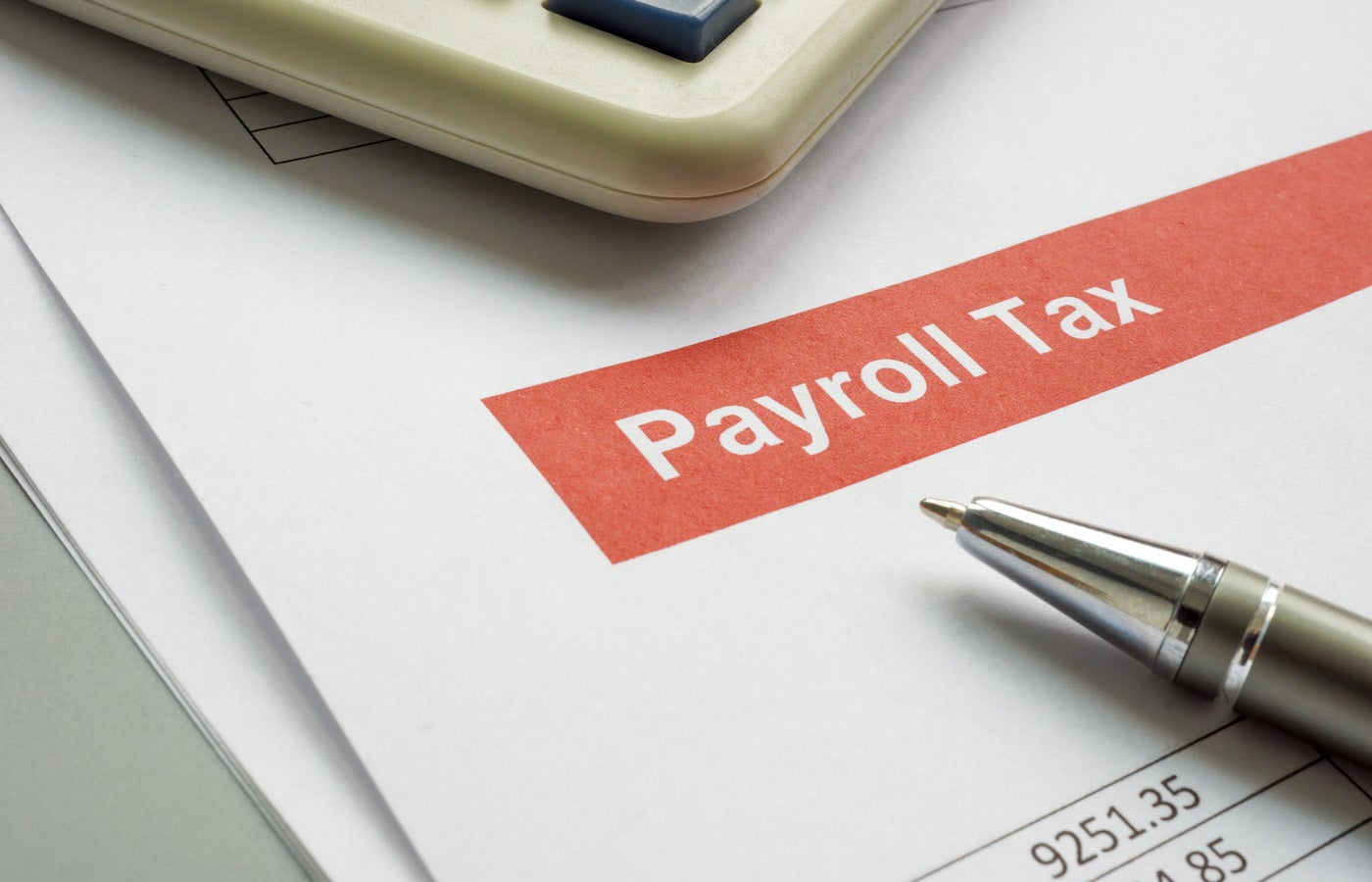All businesses file payroll taxes on a regular schedule set by the IRS. However, there are multiple payroll tax deposit schedules, so how do you know which one your business is supposed to follow?
You should start by understanding your business’s lookback period, a term that refers to a specific period of time during which you reported a payroll tax liability. Below, we’ll explain how the IRS defines lookback periods, what your lookback period is and how it determines which payroll tax deposit schedule you should follow.
Jump to:
- What are payroll taxes?
- What is a lookback period for payroll taxes?
- Lookback periods for Form 941 filers
- Lookback periods for Form 944 and 943 filers
- What is your payroll tax deposit schedule?
- Frequently asked questions
Featured partners
What are payroll taxes?
“Payroll tax” is a lay term for taxes all employers deduct and remit to the federal government on behalf of their employees. Broadly speaking, payroll taxes include federal income taxes, FICA taxes (taxes that contribute to Social Security and Medicare funds), FUTA (federal unemployment taxes) as well as state and local taxes.
FUTA taxes have a fairly straightforward deposit schedule that you can learn about by reading our overview of payroll tax deadlines. However, FICA and federal income taxes are deposited on a different cadence determined by what the IRS calls a “lookback period.”
What is a lookback period for payroll taxes?
A lookback period for payroll tax deposit deadlines refers to a past, IRS-specified period of time during which you reported a payroll tax liability. Your total tax liability during the lookback period will determine whether you deposit taxes for the current fiscal year on a monthly or semi-weekly basis.
Your business’s lookback period depends on which tax form you use when filing your payroll tax return with the federal government: Form 941, 943 or 944.
SEE: What Is a 1099 Form? (Tech Republic)
Lookback periods for Form 941 filers
IRS Form 941 is a form employers file to report on the wages they’ve paid and the employment taxes they’ve withheld over the last fiscal quarter. Almost all non-agricultural businesses file Form 941 instead of Form 944, which is filed by the smallest of small businesses.
If you file IRS Form 941, your lookback period spans four fiscal quarters, starting on July 1st of one calendar year through June 30th of the next calendar year.
To determine their payroll tax deposit schedule for the 2023 tax year, employers who file Form 941 would look at their tax liability over four quarters’ worth of filed 941 forms:
- 2021’s third fiscal quarter, or July 1st through September 30th.
- 2021’s fourth fiscal quarter, or October 1st through December 31st.
- 2022’s first fiscal quarter, or January 1st through March 31st.
- 2022’s second fiscal quarter, or April 1st through June 30th.
Looking forward to the 2024 tax year, your lookback period would be as follows:
- 2022’s third fiscal quarter, or July 1st through September 30th.
- 2022’s fourth fiscal quarter, or October 1st through December 31st.
- 2023’s first fiscal quarter, or January 1st through March 31st.
- 2023’s second fiscal quarter, or April 1st through June 30th.
Lookback periods for Form 944 and 943 filers
Non-agricultural businesses that report a federal income tax and FICA tax liability of less than $1,000 per year file tax form 944 instead of 941. If you need to file IRS Form 941, the IRS will send you an official notice through the U.S. Postal Service. Otherwise, you can safely assume you should file Form 941.
If you file IRS Form 944, your lookback period spans January 1st through December 31st of the second-most-recent calendar year.
For instance, those filing for the 2023 tax year would calculate their tax liability from January 1st, 2021 through December 31st, 2021.
The same annual lookback period applies to agricultural businesses, which file Form 943 instead of 941 or 944.
What is your payroll tax deposit schedule?
Once you’ve calculated your total tax liability over the lookback period, you can determine which payroll tax deposit schedule to follow:
- If your reported tax liability was $50,000 or less over the most recent lookback period, you must deposit federal employment taxes on a monthly basis.
- If your reported tax liability was greater than $50,000 over the most recent lookback period, you must deposit federal employment taxes on a semi-weekly basis.
For more information about your business’s payroll tax deposit schedule, required employer tax forms and lookback period, we recommend reading IRS Publication 15, or the Employer’s Tax Guide.
You should also consult your bookkeeper, CPA, lawyer or financial advisor to make sure you’re following the correct payroll tax deposit schedule. Missing a payroll tax deadline or submitting the wrong forms can result in fines and penalties, so verifying your business’s payroll tax information with a professional who can give you personalized advice is always a good idea.
Along with a trusted financial advisor, tax tools like business tax-filing software, payroll software and accounting software can help you stay on top of your business’s payroll tax filing schedule.
Frequently asked questions
What is a lookback period for tax-exempt status?
The IRS uses five-year lookback periods to determine whether or not a charitable establishment qualifies for tax-exempt status. In contrast, lookback periods for payroll tax filing are either four fiscal quarters or one calendar year long.
How often do I file payroll taxes as a new employer?
Since brand-new employers haven’t paid employees in the past, they don’t have payroll tax forms to look back on. Without a lookback period, by default, new employers follow a monthly payroll tax deposit schedule for their first year of businesses.
Read next: The Best Accounting Software for Small Businesses (TechRepublic)
Featured payroll solutions
1 Deel
Run payroll in 100+ countries and 200+ currencies from a single place. Deel’s comprehensive global platform eliminates the ongoing admin of local compliance, taxes, and benefits. With in-house experts across 100+ countries, dedicated CSM’s, visa and PTO support, and more, Deel provides unmatched payroll expertise and service. Plus, with a single point of contact, we eliminate handovers, providing you with faster support and compliance, so your entire global team gets paid quickly and securely.



